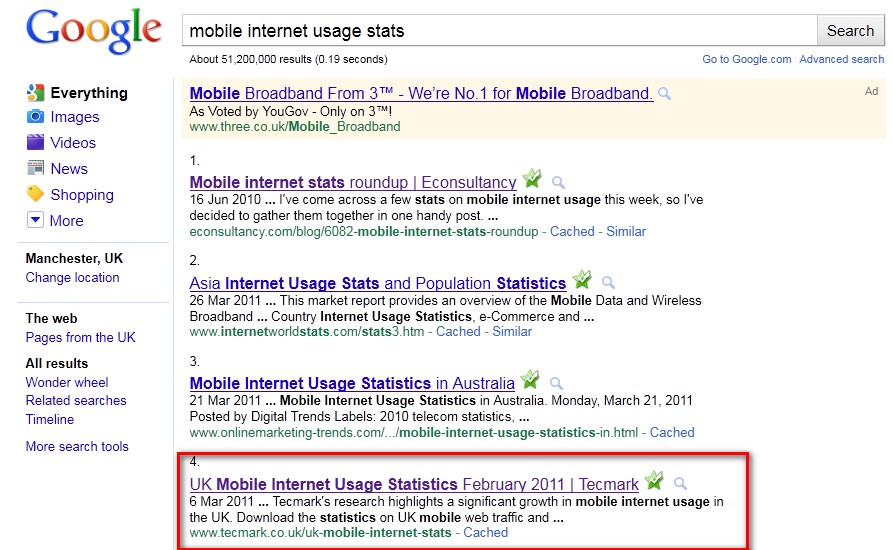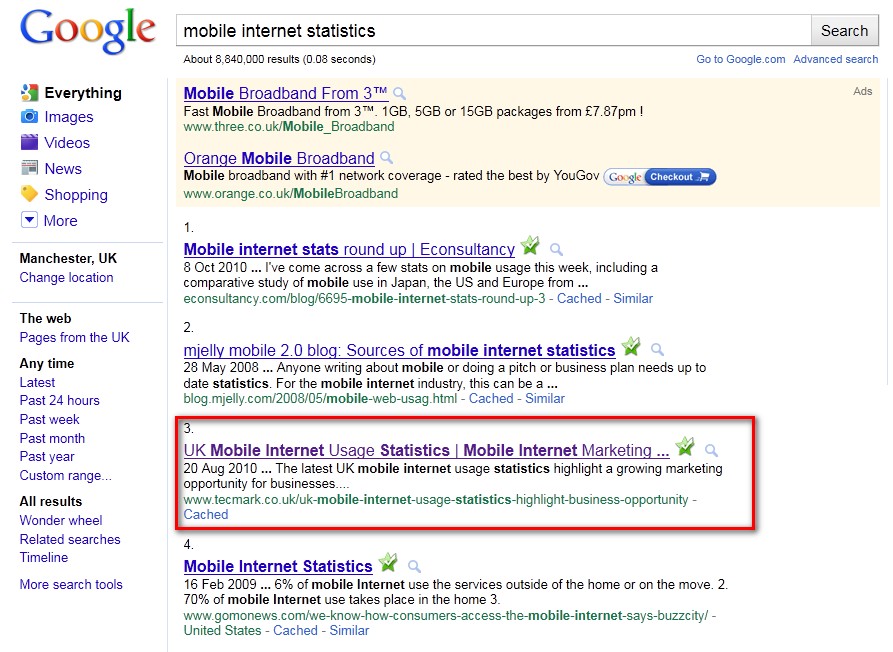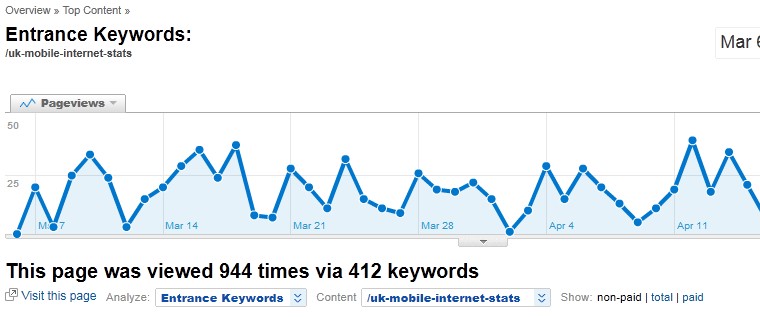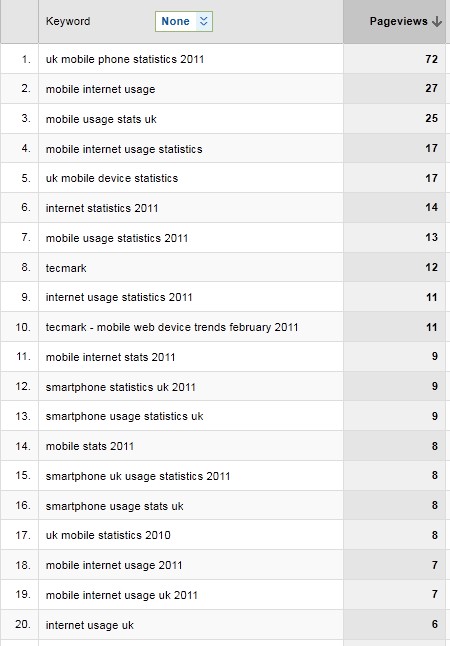We’re forever banging on about original content and the recent Panda update seemed to confirm its importance as part of a sustainable SEO campaign.
It’s not just about ‘unique’ content. It’s about original ideas. Simply rewording somebody else’s article or blog post doesn’t really cut it. One of the ways in which we’ve been encouraging clients to create original content is by sharing some data or research and we decided to practice what we preach.
In February, we put together a research paper on UK mobile internet usage statistics. We published this on our blog on March 6th and, without doing any link building, saw the post indexed and ranking for a number of related keywords very, very quickly:



In fact, it turns out we are ranking very well for a whole host of related keywords. Let’s take a look at the Analytics from the date the post went live (6th March) to the end of yesterday (26th April).
The Stats
The blog post has enjoyed, in the 7 weeks since it has been live, 1,131 views, the vast majority of which are from search. Not bad for a blog post that we did little to promote! But what’s most interesting for us is the sheer quantity of keywords that are referring traffic from search directly to that blog post – 412 so far to be specific.

Here’s just a sample of the referring keywords:

And for those of you interested in what the rest were, here’s a spreadsheet with all 412 – just because we’re generous like that.
Now, for us who go on and on and on about the value of content in driving traffic through search, this is a nice little case study. No, we’re not talking millions and millions of views – but by the same token nor did we do anything explicitly to promote the post.
Time
Producing something like this is time consuming. Granted. But it’s proven worthwhile. Google ranks us incredibly highly for all manner of searches relating to UK mobile internet stats and that is generating traffic and even a few natural links.



